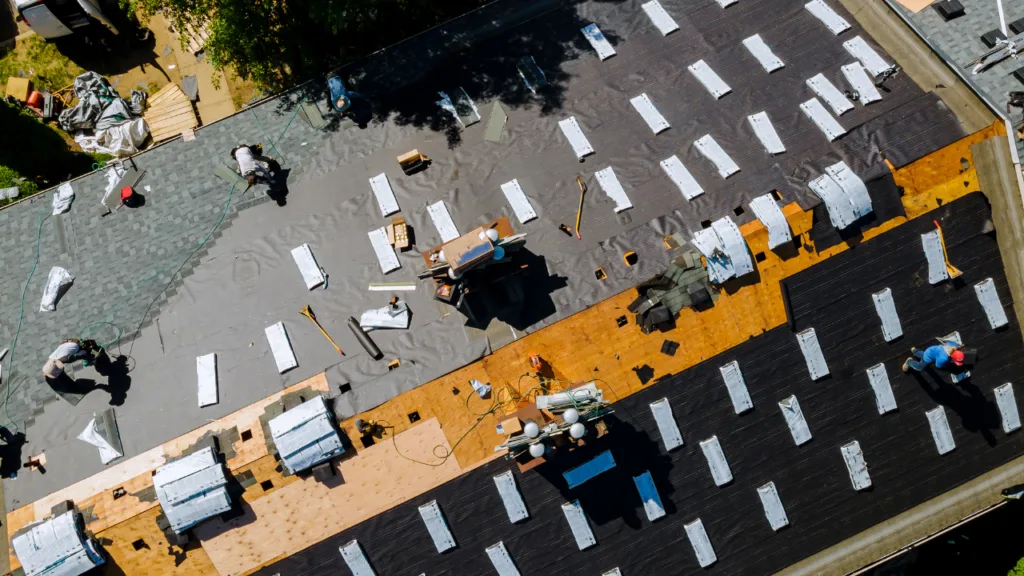
A roof replacement is a significant investment for any homeowner, and it’s essential to understand the costs involved. The cost to tear off and replace a roof can vary depending on various factors such as the size of your home, roofing material, and your location.
In this article, we’ll provide you with expert insights into the average cost to tear off and replace a roof. We’ll explore the factors that can impact the total cost, such as the cost of materials, labor, permits, and disposal fees.
Whether you’re planning a roof replacement project or curious about the costs involved, this guide will equip you with the knowledge to make informed decisions. So, let’s get started and find out the average cost to tear off and replace a roof in your area.
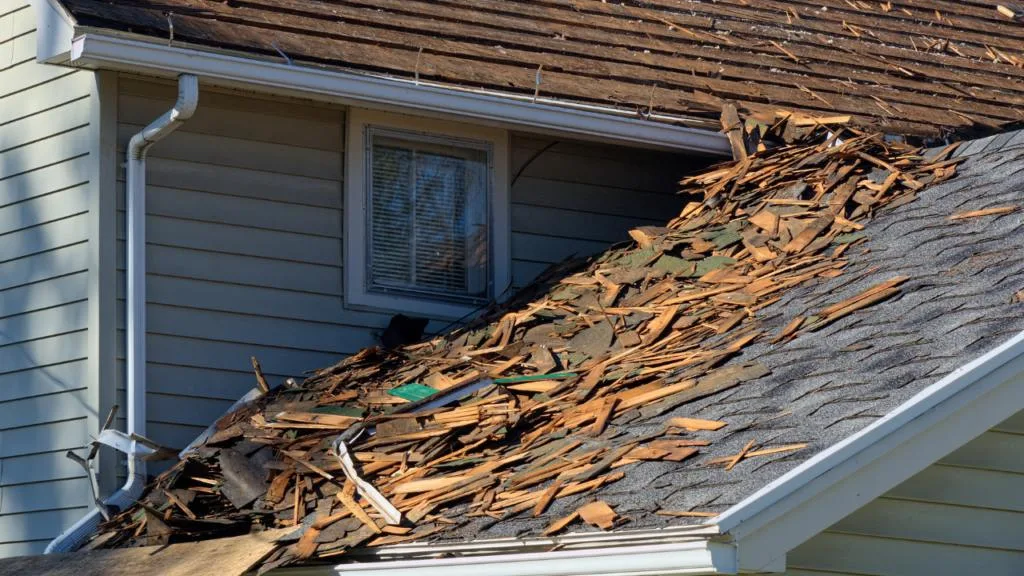
Average Cost to Tear Off and Replace Roof
When considering a roof replacement, it’s essential to account for the cost of tearing off the old roof and installing a new one. Costs can vary depending on the materials used, labor costs, and your location.
To give you a better understanding of the expenses involved, here is a breakdown of the average cost to tear off and replace different types of roofs:
- Asphalt Shingles: For this common roofing material, the average cost ranges between $5,200 and $11,300. If you possess the necessary skills and opt for a DIY installation, you can save around 50%.
- Metal Roofs: The cost to tear off and replace a metal roof depends on the type of metal utilized. Steel and aluminum are the most affordable, averaging between $5 and $16 per square foot. Copper and zinc are more expensive, with replacement costs for standing seam metal roofs ranging from $9 to $16 per square foot or $13,500 to $40,000 on average.
- Tile Roofs: For tile roofs, the cost will vary based on the specific material. Include an additional $1,000 to $1,500 to account for tear-off and disposal fees.
Keep in mind that roofing labor costs generally range from $150 to $300 per square (100 SF). Additionally, factors like the size and pitch of your roof, as well as your location, can impact the overall cost of your project.
When budgeting for a roof replacement, make sure to consider these costs and factor in any additional expenses such as permits and inspections. By doing so, you can ensure a smooth and successful roof replacement process for your home.
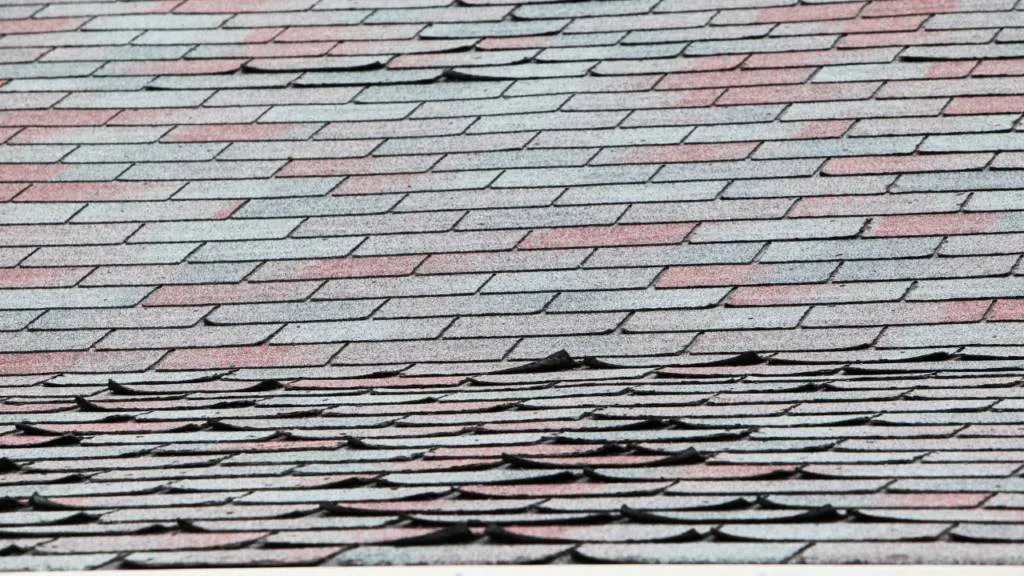
Roofing Materials and Their Costs
Asphalt Shingles
As a homeowner, you have a few options when it comes to asphalt shingles. The most common type is the 3-tab shingle, which costs about $5,200 to $11,300 to tear off and replace on an average roof.
The other popular choice is architectural or dimensional shingles, which cost approximately $8,900 to replace on a 2,000 square foot roof.
Metal Roofing
One of the more durable and low-maintenance options is metal roofing. The cost to tear off and replace a metal roof ranges from $5 to $16 per square foot, depending on the material.
Steel and aluminum tend to be the most affordable, while copper and zinc are more expensive. For a standing seam metal roof, the average cost of replacement is between $13,500 and $40,000.
Slate Roofing
If you’re considering a more high-end, elegant option, slate roofing is worth considering. Slate tiles offer exceptional durability but come with a higher price tag.
Costs for slate roof replacement can vary greatly depending on the tile quality and installation complexity.
Wood Shakes
An attractive, rustic option, wood shakes are a popular choice for homeowners seeking a natural appearance. Prices for replacing a wood shake roof vary depending on the quality and type of wood used.
Keep in mind that this roofing option requires more maintenance than others, like metal or slate.
Tile Roofing
Tile roofing is a durable and visually appealing option, with a higher cost to tear off and replace than other materials. Prices for a tile roof replacement can range significantly based on the type and quality of the tiles used.
TPO and PVC
Thermoplastic polyolefin (TPO) and polyvinyl chloride (PVC) are single-ply roofing membranes commonly used for flat or low-slope roofs. Although different in composition, both TPO and PVC offer energy-efficient and durable roofing options.
The cost to replace a roof with TPO or PVC varies depending on the size and complexity of the project.
Composite Roofing
Composite roofing materials are designed to imitate the appearance of asphalt shingles, wood shakes, or slate tiles, while offering increased durability and longevity. These materials can be made of various compositions like recycled plastics, rubber, or fiber cement.
As a result, the cost of replacing a roof with composite materials can vary, depending on the specific product you choose.
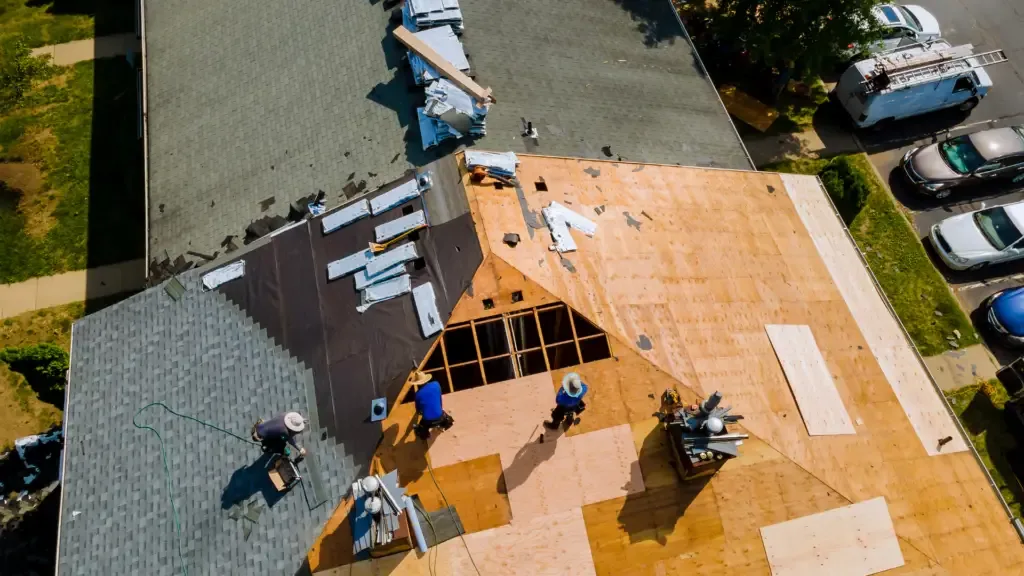
Factors Affecting Roof Replacement Costs
Size and Accessibility of the Roof
The size and accessibility of your roof play a significant role in determining the cost of a tear-off and replacement. Generally, costs are calculated by the number of roofing squares, where one square is equal to 100 square feet.
The larger your roof, the more materials and labor will be needed, increasing the overall cost.
Accessibility also affects the cost, as roofs with many obstacles or difficult access require more time and specialized equipment for the contractors to complete the project.
Slope and Pitch
The slope and pitch of your roof impact the cost due to the increased difficulty in working on steep surfaces. Steeper roofs require additional safety measures, and the work is generally slower, increasing labor costs.
Roofs with a higher pitch also demand more materials, further increasing the project’s cost.
Location and Building Codes
Your location can significantly impact the cost of a roof replacement as prices vary depending on the area. Local building codes and regional climate factors also play a part in determining material requirements and labor rates.
Areas prone to natural disasters or extreme weather conditions may require more durable roofing materials, increasing overall costs.
Difficulty of Roof Removal and Installation
The ease of removing your existing roof and installing the new one greatly affects the cost. If your roof has multiple layers, the removal process is more time-consuming and, thus, more expensive.
Additionally, some roofing materials are more difficult to install than others, resulting in higher labor costs.
Number of Layers and Roofing Square
The number of layers on your roof and the total roofing square will contribute to the overall cost. Multiple layers of shingles or other materials require more labor to tear off and dispose of, while a larger roofing square will need more materials and additional work hours for installation.
Structural Issues and Repairs
Structural issues found during the roof replacement process may lead to necessary repairs, increasing the cost. Issues such as water damage, mold, or rotten wood decking will need to be addressed before installing the new roof materials.
Repair costs can vary depending on the severity of the damage and the required remediation work.
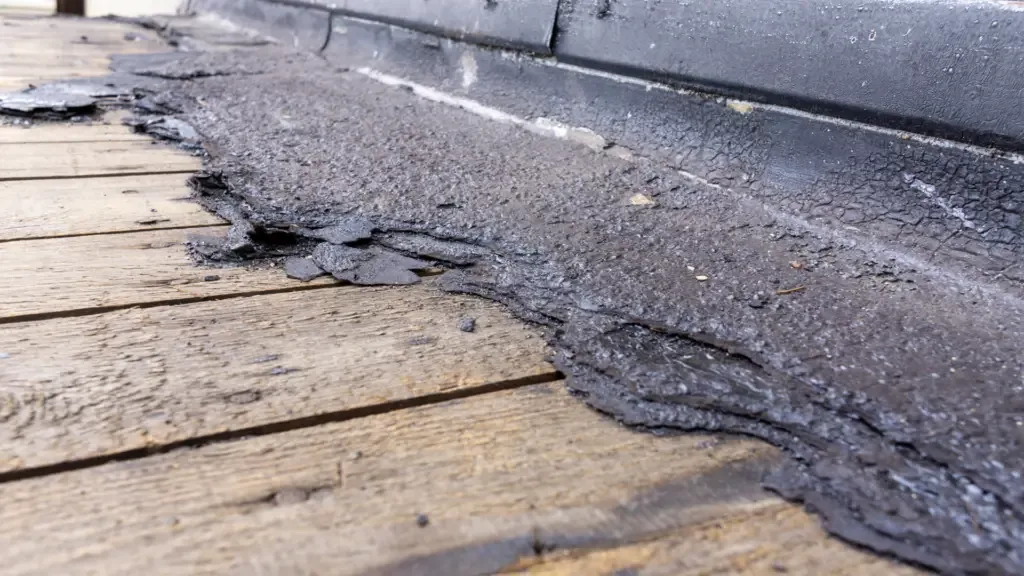
Labor and Its Impact on Costs
Roofing Contractors and Their Rates
When considering a roof replacement, labor costs are an important factor that affects the overall price. Roofing contractors typically charge between $200 and $350 per square (100 SF) for asphalt shingle installation, plus $80 to $250 per square for materials.
The type of shingle can also impact the cost, with 3-tab shingles usually being less expensive than architectural asphalt shingles.
For the labor portion, keep in mind that roofers typically charge $30 to $100 per hour. Metal roof installation is usually more expensive, costing $4 to $8 per square foot for labor alone.
Factors such as the steepness and complexity of your roof, as well as any skylights or other custom features, can also influence labor costs.
Permits and Inspections
As a homeowner, you may also need to factor in the cost of permits and inspections for your roof replacement project. Depending on your location, permitting fees can vary widely.
Generally, these fees are based on the size and scope of your project, and may also be determined by local building codes.
Inspections are often required before and after the roof replacement to ensure that the work has been completed according to the building codes and standards. Roof inspection costs can range from $200 to $400, and in some cases, even higher.
To get a better understanding of the overall cost of your roof replacement, you can use a roof replacement cost calculator to help you estimate the project costs based on your specific requirements.
In summary, labor costs and additional expenses such as permits and inspections are crucial to consider when calculating the average cost to tear off and replace a roof. Take the time to research and compare different roofing contractors, materials, and local regulations to ensure a successful and cost-effective roof replacement project.
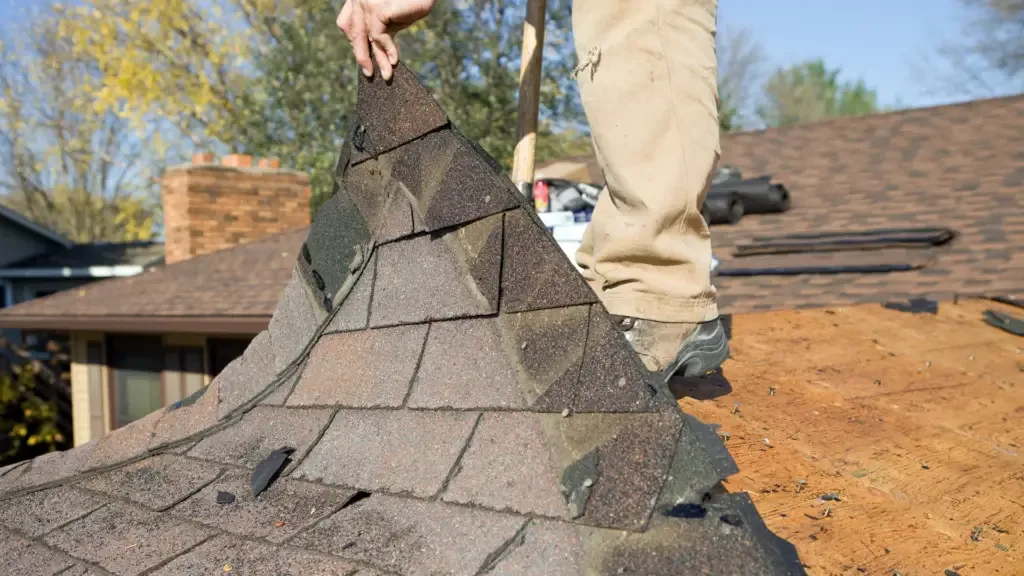
Additional Costs and Considerations
Flashing and Ventilation Replacement
When replacing your roof, it’s essential to consider the flashing and ventilation system, crucial for protecting your home from leaks and water damage. Flashing helps direct water away from critical areas, such as chimneys and vents, while proper ventilation reduces heat and moisture buildup, preventing mold and rot.
The cost of replacing flashing and ventilation can range from $250 to $1,000, depending on the complexity of your roof and the materials used.
Roof Underlayment
The underlayment is a protective barrier that sits between your shingles and the roof deck, helping to prevent leaks and reduce moisture. When replacing your roof, it’s a good idea to invest in high-quality underlayment, as it will provide better protection and longevity.
There are several types of underlayment, with prices usually ranging between $0.50 and $1.00 per square foot.
- Felt: Typically the most affordable option, felt underlayment provides basic protection against moisture and leakage.
- Synthetic: A more durable option, synthetic underlayment is waterproof and offers superior protection against leaks and water damage.
- Rubberized asphalt: Offering the highest level of protection, rubberized asphalt underlayment is self-adhesive and best suited for extreme climates or complex roof designs.
Gutter and Soffits Upgrades
Upgrading your gutters and soffits can significantly improve the overall performance and aesthetics of your roof. Soffits and fascia boards are essential for proper attic ventilation and prevent rot and mold.
Updating them along with your roof replacement can save you time and money in the long run. The cost for upgrading gutters and soffits can vary widely, depending on the materials used and the extent of the project, but typically falls between $1,000 and $4,000.
Waste Removal
The process of tearing off and replacing a roof generates a considerable amount of waste, including old shingles, nails, and other debris. Proper waste removal is essential to maintain a clean and safe work site, and the cost for this service can range from $100 to $600, depending on the size and complexity of the project.
Be sure to factor in waste removal costs when budgeting for your roof replacement.
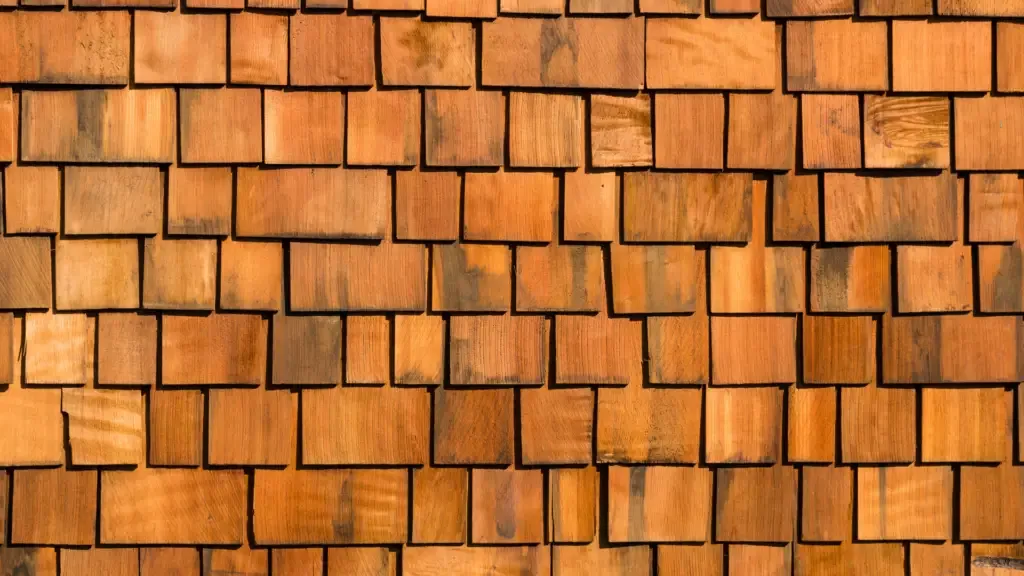
Differences in Roof Shapes and Their Costs
Gable Roofs
Gable roofs are one of the most common roof shapes, and their simple design makes them easy to install and maintain. The pitch of these roofs can vary, which could affect the cost of installation and materials needed.
Typical materials for gable roofs include asphalt shingles, wooden shakes, and metal roofing. When repairing gable roofs, keep in mind that dormer windows could add complexity and increase the repair costs.
Some common maintenance issues with gable roofs include:
- Leakage around dormer windows
- Damage to the fascia or soffits.
Hip Roofs
Hip roofs have a more complex design, with four sloping sides that meet at the top. This shape provides better stability and resistance to wind, but it can also increase the cost of installation and materials. Hip roofs require proper ventilation and insulation, and the pitch will affect the type of material used.
Some options for hip roof materials are:
- Asphalt shingles
- Wooden shakes
- Metal roofing.
Repairing hip roofs could be challenging due to the complexity of their design, which could result in higher labor costs. It’s also important to consider local building codes when replacing or repairing a hip roof, as they might have specific requirements for your area.
Flat Roofs
Flat roofs offer a minimalist look and are common in more modern homes or commercial buildings. While they are easier to install than pitched roofs, they require specific materials and regular maintenance to prevent issues.
Some materials commonly used for flat roofs include:
- PVC
- TPO (thermoplastic olefin)
- EPDM (ethylene propylene diene terpolymer).
Keep in mind that flat roofs are more prone to pooling water and leaks, which must be addressed promptly. This could result in more frequent repairs or even higher costs in the long run.
However, the simplicity of a flat roof design may allow for more DIY repairs or maintenance, helping you save on labor costs. Just make sure to follow proper safety precautions when working on your roof.
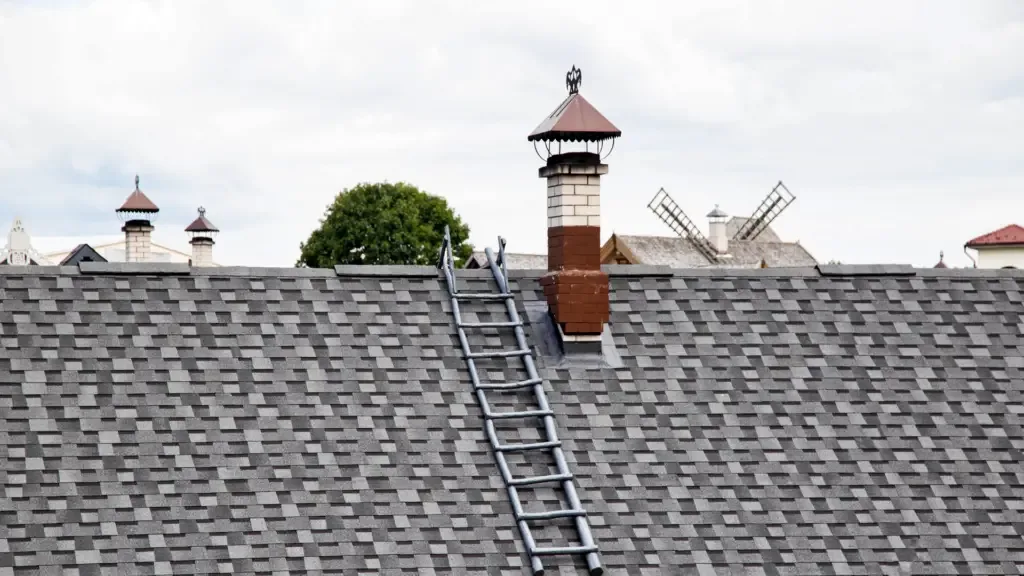
FAQs and Tips for Homeowners
When considering a roof replacement, it’s important to keep the following factors in mind:
- Time: Replacing a roof typically takes several days, depending on the size of your home.
- Value: A new roof can increase your home’s value and curb appeal, making it a worthwhile investment.
- Standing seam: A standing seam metal roof is a durable and long-lasting option, costing between $900 to $1,200 per square.
- Maintenance: Regular maintenance, such as cleaning gutters and inspecting for damage, can help prolong the life of your roof.
Roof Replacement Costs
Replacement costs vary depending on the material used and the complexity of your roof. Here’s a breakdown of average costs for some popular roofing materials:
- 3-tab asphalt shingles: $7,300 – $10,600
- Architectural shingles: $11,200 – $17,100
- Upgraded architectural shingles: $13,100 – $19,000
- Wood shingles: $13,700 – $24,520
- Standing seam metal roof: $21,000 – $37,500
Ordering Materials
Make sure to account for extra materials such as new flashing, dormer windows, and chimney seals. These materials will add to the overall cost of your roof replacement.
Material Costs
Different roofing materials have varying costs, with asphalt shingles being the cheapest option and metal roofing being a more expensive alternative:
- 3-tab asphalt shingles cost around $350 – $550 per square
- Wood shingles cost around $637 – $877 per square
- Standing seam metal roofing costs around $900 – $1,200 per square
Warranties
When replacing your roof, opt for a warranty from the manufacturer or installer. A warranty can offer peace of mind and protect your investment in cases of defective materials or installation errors.
